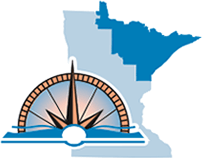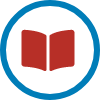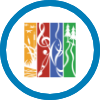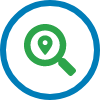Arrowhead Library System (ALS) has a long-standing commitment to maintaining a collection of current publication titles of interest to librarians, library staff and library trustees. The collection is housed at the ALS Headquarters in Mountain Iron, but all titles can be requested via the online catalog (if you have a borrower’s card from an ALS library) or via the statewide MnLINK catalog (if you have a borrower’s card from Duluth Public Library). If you have questions about borrowing titles from the ALS Professional Collection, feel free to call ALS staff! Here are the latest additions to the ALS collection:
Developing the Next Generation of Library Leaders (ACRL Publications in Librarianship #75)
Lori Birrell
Association of College and Research Libraries, 2020
020.23 BIR 2020
The leadership and management skills and competencies needed to lead an academic library are not always limited to domain-based expertise developed in graduate school and honed over careers. Librarians in administrative positions, both within the organization and the greater university leadership structure, need to be entrepreneurial in their approach to leadership and become systems thinkers: consider the overarching structures in which they operate, identify collaborative opportunities to strengthen their organizations, and creatively lead bold change in order to keep their organizations relevant.
Developing the Next Generation of Library Leaders examines how the library profession can foster this skill development for new leaders through the leadership stories and development of twenty-two assistant/associate deans. Ten big ideas emerged through this research:
- Developing a career ladder
- Mitigating identity crisis
- Learning theory, applying to practice
- Support
- Find your people
- Leadership pause points
- Alternative leadership and management models
- Demystifying leadership and management
- Succession planning
- Battling gender-based doubts
Each of these ideas include questions as well as recommendations that, when taken together, offer a holistic approach to shrinking the leadership gap in our profession and preparing the next generation of library leaders to move the profession forward and meet the evolving challenges of higher education.
Libraryland: It’s All about the Story
Edited by Ben Bizzle and Sue Considine
ALA Editions, 2020
021.2 BIZ 2020
Libraries are community connectors, places where people come together, think together, and learn together. Libraries support and nurture strong, resilient communities. Day in and day out, the library workers at these institutions are doing much more than ensuring equal and equitable access to information; and their impact stretches far beyond the books, programs, and services they facilitate. Featuring contributions from such library leaders as Rebekkah Smith Aldrich, the late Nicolette Sosulski, and Erica Freudenberger, this collection of inspiring first-hand stories from across libraryland spotlights the countless ways in which library staff are making a difference for their communities. A sharing of the hearts, minds, and spirits of library staff from across the country, the uplifting personal narratives in this book include
- when a routine reference query inspired a librarian to reach out to a senior patron;
- how a public library’s annual Diwali celebration has strengthened the social fabric of the surrounding community;
- the story of a library that burned down, was hit by a hurricane, got sued twice, and yet still reemerged stronger than ever;
- how the team at the Fayetteville Free Library (FFL) of New York has strategically nurtured a culture of innovation by integrating Syracuse University students into the staff, holding technology “open houses,” and developing other initiatives; and
- the intervention of a public library staff member that helped a mother keep her son enrolled in school and receive his diploma.
Library workers change and save lives every day, and this book is a powerful and nourishing reminder of exactly why libraries are essential.
100+ Ideas to Inspire Smart Spaces and Creative Places
Elisabeth Doucett
ALA Editions, 2020
022.3 DOU 2020
The ideas in this book are all about helping your library building become a more exciting, interesting, experiential space where people are engaged and want to spend time. More time spent in the library increases the library’s value and relevance to its users—and the more intriguing the space is, the more it helps draw in new patrons. Taking inspiration and examples from companies and non-profits outside the library world, this book’s engaging ideas include
- using “biophilic design” to bring nature into your library through gardens, plants, and greenery;
- transforming static spaces into “Instagram bait”;
- putting art installations in bathrooms;
- turning underutilized spaces like hallways and mezzanines into welcoming “chill” zones;
- creating pop-ups and other flexible spaces that change regularly;
- developing co-working spaces in libraries;
- preserving and promoting silent spaces; and
- creating “parklets” from parking spaces.
Complete with lists of additional resources for discovering even more ideas, this book will help all kinds of libraries create innovative spaces that will delight their communities.
Collection Management for Youth: Equity, Inclusion and Learning (2nd Edition)
Sandra Hughes-Hassell
ALA Editions, 2020
025.21878 HUG 2020
With a renewed emphasis on facilitating learning, supporting multiple literacies, and advancing equity and inclusion, the thoroughly updated and revised second edition of this trusted text provides models and tools that will enable library staff who serve youth to create and maintain collections that provide equitable access to all youth. And as Hughes-Hassell demonstrates, the only way to do this is for collection managers to be learner-centered, confidently acting as information guides, change agents, and leaders. Based on the latest educational theory and research, this book
- presents the argument for why collection management decisions and practices should focus on equity, exploring systemic inequities, educational paradigm shifts, developments in the information environment, and other key factors;
- lays out the theoretical foundation for developing and managing a library collection that facilitates learning, supports the development of multiple literacies, and provides equitable access to an increasingly diverse group of young learners;
- touches upon current competencies and standards by AASL, YALSA, and ALSC;
- uses a learner-centered and equity perspective to cover core issues and criteria such as selection and removal of materials, budgeting, and cooperation among libraries;
- shows how a business viewpoint can assist the learner-centered collector in articulating the central significance of the collection to learning;
- discusses how library staff can work collaboratively to create policy and negotiate budgets; and
- includes customizable tools and templates, including a Stakeholder Contact/SWOT Analysis, Decision-Making Model for Selecting Resources and Access Points that Support Learning and Advance Equity, and Collection Development Analysis Worksheet.
This resource will be as useful to current school librarians and supervisors, youth librarians in public libraries, and educators as it will to LIS students.
Reference and Information Services: An Introduction (6th Edition)
Edited by Melissa A. Wong and Laura Saunders
ABC-CLIO, 2020
025.52 WON 2020
This revised and updated sixth edition of Reference and Information Services continues the book’s rich tradition, covering all phases of reference and information services with less emphasis on print and more emphasis on strategies and scenarios. Reference and Information Services is the go-to textbook for MSLIS and i-School courses on reference services and related topics. It is also a helpful handbook for practitioners. Authors include LIS faculty and professionals who have relevant degrees in their areas and who have published extensively on their topics.
The first half of the book provides an overview of reference services and techniques for service provision, including the reference interview, ethics, instruction, evaluation and assessment, and services to diverse populations including children. This part of the book establishes a foundation of knowledge on reference service and frames each topic with ethical and social justice perspectives.
The second part of the book offers an overview of the information life cycle and dissemination of information, followed by an in-depth examination of information sources by type-including dictionaries, encyclopedias, indexes, and abstracts-as well as by broad subject areas including government, statistics and data, health, and legal information. This second part introduces the tools and resources that reference professionals use to provide the services described in the first half of the text.
- Reference and Information Services is a recognized textbook for information retrieval courses and updates the previous edition
- Editors and contributors are experts in the field
- Activity boxes engage readers and invite them to reflect on what they are learning and practice skills through real-life exercises
- Conscious integration of critical theory and social justice perspectives offers critical reflection on the standards and practices of the field and encourages readers to consider alternate perspectives
Envisioning the Future of Reference: Trends, Reflections, and Innovations
Edited by Diane Zabel and Lauren Reiter
Libraries Unlimited, 2020
025.52 ZAB 2020
Offering a broad overview of consequential changes in the landscape of reference services, this guide also provides practical guidance on how to meet the new challenges they present. For the past decade, librarians have been lamenting the demise of reference services. Encouraging recent research shows that reference librarians are actually in more demand than ever; however, nearly everything about reference has changed―from technologies, tools, and techniques to models of service.
What are these changes, and how can the profession respond to and prepare for shifting priorities and user needs? In this volume, business librarians Diane Zabel and Lauren Reiter bring together a host of experts to answer these timely questions. Topics range from the education and training of professionals to meeting the needs and wants of employers. Covered are trends in chat reference, research consultations, do-it-yourself reference, tracking trends with user populations, assessment, and data-driven decisions about reference services. Grounded in the principle that regardless of the evolutions in service, the user remains at the center of reference, this guide offers readers an exciting look at the future of this important public service.
- Informs librarians of trends currently affecting the profession and shows how to deal with them
- Covers a wide array of topics, from those affecting the education of reference services to assessment of services
- Provides an in-depth look at new models in reference services
On the Go with Senior Services: Library Programs for Any Time and Any Place
Phyllis Goodman
Libraries Unlimited, 2020
027.622 GOO 2020
Not only does this book offer insights into how to better serve all seniors, but it also provides complete step-by-step instructions for dozens of exciting and engaging programs that can be held both onsite and offsite. While serving the senior population is a standard service in public libraries, it has traditionally focused on in-house programs and homebound services. On the Go with Senior Services is different. With this inspiring and practical guide, your library can rejuvenate its in-house services with new programs and also take them on the road—to retirement and assisted living communities, adult day care programs, and nursing homes and rehab centers.
With such diversity in the senior population, this book describes strategies for designing senior programs that fit your community’s needs. It offers a trove of templates for programs that range from crafts, word games, pop culture, pets, holidays, humor, mysteries, technology, and music. It offers tips and suggestions on how to interact with seniors, including those who may have a variety of physical and cognitive needs. There are also guidelines for working with individuals suffering from dementia. A robust list of further resources is provided. The growing population of seniors presents librarians with new challenges and opportunities, and this book is a valuable guide to navigating and embracing them.
- Features program templates with step-by-step instructions guaranteed to save you time
- Offers ideas for programs that can be conducted at the library or offsite senior facilities
- Provides surefire ideas for working with seniors and technology
- Covers segments of the senior population not thoroughly addressed in other professional sources, helping librarians fill in or expand into areas
- Includes guidance on working with seniors with dementia or Alzheimer’s
Pairing STEAM with Stories: 46 Hands-On Activities for Children
Elizabeth M. McChesney and Brett Nicholas
ALA Editions, 2020
027.62509 MCC 2020
Laying the groundwork for building children’s curiosity, openness to learning, ability to persist in the face of failure, and interest in connecting learning from one subject to the other are important objectives for today’s libraries. Partnering with cultural institutions, such as the Chicago Public Library (CPL) does with Chicago’s Museum of Science and Industry (MSI), libraries can forge powerful connections between literacy and science. This resource shares the fruits of that partnership, offering ready-to-go, library-tested activities that meld cutting-edge STEAM education principles with some of the best books available for youth today. It’s a model that can be used in a variety of library or museum settings and can also be adapted for outreach. Inside, readers will find
- 46 book-based, customizable STEAM activities, each complete with program length, materials list, and step-by-step instructions;
- real-life tips, advice, and thoughts from practicing CPL librarians sprinkled throughout the book;
- pointers on incorporating STEAM into existing programs;
- pedagogical strategies behind effective STEAM experiences, ensuring successful implementation of these skills; and
- helpful supporting materials such as a program planning rubric and a vendor list.
The activities in this book will make STEAM education fun while planting the seeds for lifelong learning.
Young Activists and the Public Library: Facilitating Democracy
Virginia A. Walter
ALA Editions, 2020
027.62509 WAL 2020
Assisted by social media and other digital tools, today’s children and teens are energetic and active participants in a host of social causes, from climate change and gun control to voting rights and racial equity. Public libraries can facilitate their activism by providing trustworthy information and creating opportunities for young people to develop leadership and participation skills. A past president of the Association for Library Service to Children (ALSC), in this book Walter demonstrates how libraries can foster greater civic literacy and civic engagement in young patrons. Using a research-based approach that incorporates case studies and interviews with young people and librarians, she
- offers a solid rationale for why libraries should get involved, discussing the ways in which youth activism can be supported by core values of librarianship;
- provides an overview of key areas of activism, such as environmental awareness, school safety, and immigration rights;
- highlights teen advisory boards and community service opportunities that provide outlets for teen leadership, also suggesting ways to extend these activities to younger children;
- includes real-world examples of programs and initiatives that can be adapted for a variety of institutions; and
- shares an extensive list of additional resources, spotlighting informative and inspirational books to share with young patrons that are also ideal for book talks and storytimes.
This book shows how public libraries can facilitate democracy by empowering the passionate activism of today’s children and teens.
A Trauma-Informed Approach to Library Services
Rebecca Tolley
ALA Editions, 2020
027.663 TOL 2020
We are only now coming to terms with how common trauma really is; a landmark Kaiser study that surveyed patients receiving physicals found that almost two-thirds had experienced at least one form of abuse, neglect, or other trauma as a child. Though originating in the fields of health and social services, trauma-informed care is a framework that holds great promise for application to library work. Empathetic service, positive patron encounters, and a more trusting workplace are only a few of the benefits that this approach offers. In this important book Tolley, experienced in both academic and public libraries, puts these ideas into the library context. Library administrators, directors, and reference and user services staff will all benefit from learning
- the six key principles of trauma-informed care;
- characteristics of a trusting and transparent library organization, plus discussion questions to promote a sense of psychological safety among library workers;
- how certain language and labels can undermine mutuality, with suggested phrases that will help library staff demonstrate neutrality to patron ideas and views during information requests;
- delivery models that empower patrons;
- advice on balancing free speech on campus with students’ need for safety;
- how proper furniture arrangement can help people suffering from PTSD feel safe;
- guidance on creating safe zones for LGBTQIA+ children, teens, and adults; and
- self-assessment tools to support change toward trauma-responsive library services.
Using the trauma-informed approach outlined in this book, libraries can ensure they are empathetic community hubs where everyone feels welcomed, respected, and safe.
Enhancing Teaching and Learning: A Leadership Guide for School Librarians (4th Edition)
Jean Donham and Chelsea Sims
ALA Neal-Schuman, 2020
027.80973 DON 2020
Rapid change calls for informed leadership. The goal of Donham’s text has always been to help school library professionals make a difference in the educational experience and academic attainment of students in their schools. With the addition of new co-author Sims, a junior high school librarian, this newly revised fourth edition rises to the challenge with updates and enhancements that confirm its value as an important resource for both LIS students and current school librarians. Covering all aspects of the school system, including students, curriculum and instruction, principals, district administration, and the community, it demonstrates how to interact and collaborate in order to integrate the school library program throughout these environments. Inside, readers will find
- myriad real-world examples of issues in school librarianship and evidence-based practice;
- discussion of such urgent topics as the educational needs of the iGen (those born between 1995 and 2012), changing reading habits, the influence of the media, and news literacy and other issues related to the proliferation of fake news;
- updates which touch upon the new AASL Standards, inquiry-based learning, assessment, and library program evaluation;
- specific tactics for establishing the library program as an active player in teaching and learning;
- an overview of education-related technology such as course management systems, the virtual library, makerspaces, information presentation and data representation tools like ScreenCast and Google Maps, online home-school communication, and online student safety and privacy; and
- end-of-chapter discussion scenarios that explore opportunities for the practical application of concepts.
Reflecting changes—professional, theoretical, legal, and political—in both the library field and education, this new edition of a groundbreaking school library text will equip readers to be leaders at their schools and in their communities.
Constructing Library Buildings That Wor
Fred Schlipf
ALA Editions, 2020
727.8 SCH 2020
When it’s time to start planning for a renovation or construction project, you don’t need a book that covers everything from A to Z. Instead you need a concentrated set of tools and techniques that will guide you and your team to find the best solutions for your specific project. That’s exactly what library building expert Schlipf provides in his new book, which will be a key resource for library directors, administrators, board members, trustees, and planning professionals. Pinpointing the elements that make library buildings functional, in this book readers will find:
- a streamlined organization of the text that enables quick consultation and facilitates collaboration;
- concise coverage of the essentials of the library construction process, including who does what, how things work, and how to stay out of trouble along the way;
- advice on important planning and workflow considerations such as site selection, schematic design, funding, design development, the bidding process, construction, and post-construction occupancy;
- discussion of the characteristics of successful library buildings—buildings that are easy to maintain, welcoming to people with disabilities, have less trouble-prone restrooms, and provide security for users, staff, and collections; and
- an overview of bad ideas in library architecture, with pointed guidance on how to steer clear of them from the very beginning of your project.
This powerful primer will help everyone involved in a library building project stay focused on the task at hand.





